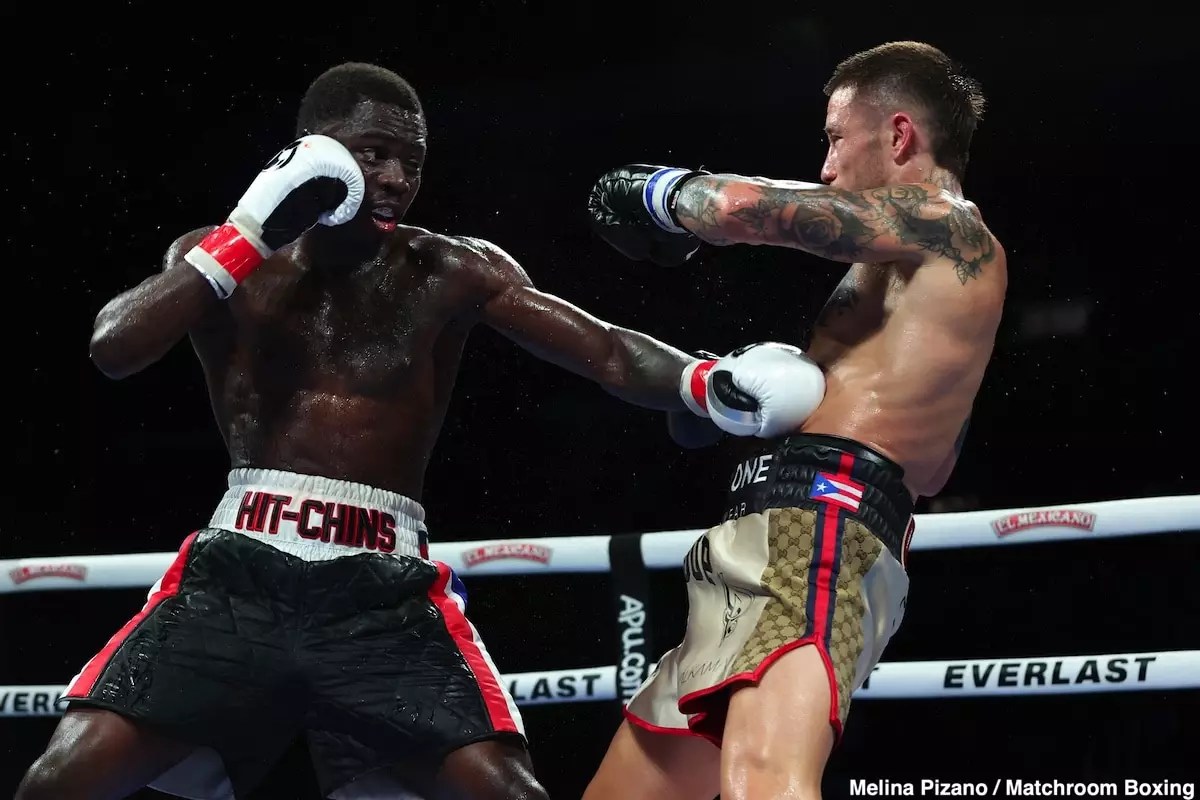In the turbulent world of boxing, promises often fall flat, and Richardson Hitchins is a stark embodiment of this harsh truth. Recently, the IBF light welterweight champion publicly refuted claims made by WBO champion Teofimo Lopez, who suggested that Hitchins requested an exorbitant $2.5 million to step into the ring on May 2nd. This clash of narratives begs the question: how did it come to this? Hitchins vehemently maintains that not only did he never demand such a staggering sum, but he was also never presented with an invitation to battle Lopez. The reciprocal disdain in boxers’ dealings with one another is emblematic of a broader systemic issue—it’s not just about competition; it’s about recognition and respect.
Hitchins’ reluctance to align with Lopez—who seems to be sidestepping him for an apparently easier match against undefeated Arnold Barboza Jr.—reveals a troubling trend in professional boxing. Instead of cultivating challenging confrontations that would excite fans, fighters often gravitate towards safer, more palatable options. This is not merely a sign of fear but highlights an underlying economic reality: the sport, governed by promotional deals and sponsorships, sometimes prioritizes financial stability over building thrilling narratives that fans crave.
At the crux of this narrative is a dance of negotiations laden with ambiguity and miscommunication. Lopez’s claims are either a reflection of his insecurity regarding Hitchins or indicative of an industry riddled with double-talk. By deflecting responsibility and spinning a tale about larger-than-life negotiations, Lopez attempts to paint himself as the coveted fighter—an image that he desperately wishes to maintain. This is a common tactic where the loudest voice often prevails, regardless of the underlying reality. Hitchins, with his profound desire to promote a unification match, becomes a victim in this charade, relegated to the sidelines, perpetually waiting for the acknowledgment he deserves.
It’s disheartening to witness talent like Hitchins being marginalized. He possesses the potential to elevate the sport due to his skills in the ring. Still, fighting under-promoted cards with unrecognized opponents only diminishes his appeal. Hitchins can speak adroitly about his capabilities and his rank as a world champion, but if he lacks the right spotlight, those accolades ring hollow.
Hitchins’ recognition as a fighter is not enough in a world driven by popularity algorithms—those weird codes that seem to dictate who fights who based on marketability rather than merit. It’s as though the boxing world has alumni of their own at a prestigious school, determining who gets invited to the big dance based on familiarity rather than capability. While fans yearn for exceptional bouts that push athletes to their limits, the barometer for those matches often sways based on social media presence and promotional backing, rather than the skill set and fight statistics displayed inside the ring.
With Lopez’s choice of Barboza Jr., Hitchins is left in limbo, wishing for greater opportunities that might never materialize. He acknowledges the irony in Lopez’s pursuit of financial gain under the guise of wanting to engage in “big fights” when, in reality, the systemic barriers continue to silence the cries of fighters like him who are desperate to prove their worth.
Hitchins’s frustration is palpable, compelling him to take matters into his own hands as he prepares for the May 2nd card. His focus is now on enchanting the audience with his showdown against Barboza Jr., understanding that even the most glittering performances can place him back into the spotlight. With aspirations to secure a significant match-up later, possibly against Jaron ‘Boots’ Ennis, Hitchins illustrates an unyielding commitment to his craft.
However, one cannot help but wonder: will boxing ever truly recognize and reward that dedication? Will the industry pivot towards valuing talent over theatrics? As Hitchins prepares for his next bout, we can only hope for profound change within the boxing world—one that breaks down the barriers to allow true champions to shine not only within the confines of the ring but also in the hearts and minds of their fans. This next chapter of his career could either be a path toward liberation from the chains of miscommunication or perhaps a reminder of boxing’s tragic cyclical nature, where talent often remains hidden in the shadows.


Leave a Reply